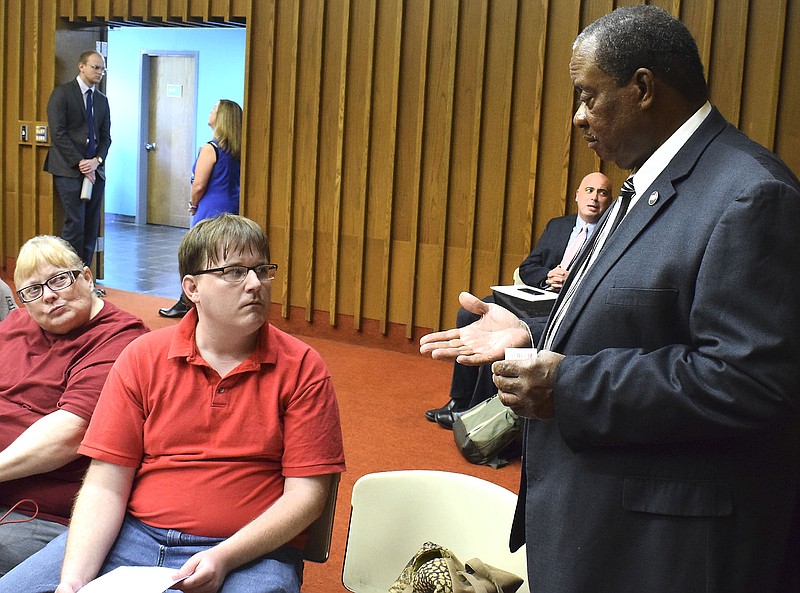When Gov. Bill Lee rolled out on Sept. 17 his proposal for a TennCare block grant, he scheduled no public hearings for Chattanooga and Memphis, two cities where TennCare is essential for large segments of the population. Thanks to the efforts of Rep. Yusuf Hakeem, a hearing was held on Oct. 16th at the Chattanooga Public Library. This was two days before the deadline for public comment on the proposal.
Rep. Hakeem spoke in opposition to the block grant. He had been among the handful of members of the General Assembly to oppose the measure when it was approved earlier this year. Mayor Andy Berke also voiced his opposition, citing the potential harm to vulnerable members of our community.
Of the 30 or so citizens who spoke, one supported the proposal but also called on faith communities to step up to solve health care for disadvantaged people. A second speaker expressed conditional support.
The most powerful of the more than 30 commentaries came from patients dependent upon TennCare.
Three people with mental health problems spoke of their dependence upon complex medications that allow them to have productive lives in the community. They reminded the audience of the powerful support which the AIM Center provides for persons with mental issues. If the block grant should lead to a scaled-down formulary, vital medications could be excluded in the name of cost controls. Each speaker courageously presented his dilemma and how TennCare provided solutions.
Other care-givers spoke of the absolute dependence of their clients upon clinical services and medications, which TennCare provides. They worried that cutbacks under a block grant would place these lives in jeopardy.
A retired director of pharmacy benefits voiced his concerns and described the proposal as confusing.
A physician who directs a clinic for poor people highlighted the essential need of TennCare coverage for many of her patients.
An accountant questioned the financial premises upon which the block grant is based.
Another speaker commented that people on TennCare could not attend the hearing because they could not leave work or afford to pay for parking near the library.
Rep. Hakeem was the only member of Hamilton County's legislative delegation, whom I saw, in attendance. The absentees missed an opportunity to hear firsthand how precious TennCare is to vulnerable people, especially those with chronic, medical problems. Without access to expert care and appropriate medications these individuals die.
I sensed that the hearing was pro forma, lip-service for public input into a complex proposal. The TennCare official gave very brief, introductory remarks and summary. Attendees received no handouts that might summarize the Governor's proposal or provide phone or email contacts. I saw no evidence of recordings. Perhaps, someone took official notes.
Compared to the Medicaid programs in other states, TennCare offers limited dental, vision and hearing care. The proposal posits substantial savings that would be split between state and federal governments.
My concerns are threefold:
* Absence of federal oversight gives state officials unchecked authority to alter TennCare benefits and services. Outside, independent review is necessary to assure that the needs of patients are met.
* Under the proposal, funding would be raised if enrollment increased but not if the cost of medications and services increased.
* A mechanism to hear appeals from TennCare recipients must be in place to ensure that necessary care is not canceled or altered.
If the Centers for Medicare and Medicaid Services approve the block grant proposal, the General Assembly must give its final approval before implementation. A proper review is necessary.
Contact Clif Cleaveland at ccleaveland@timesfreepress.com.

